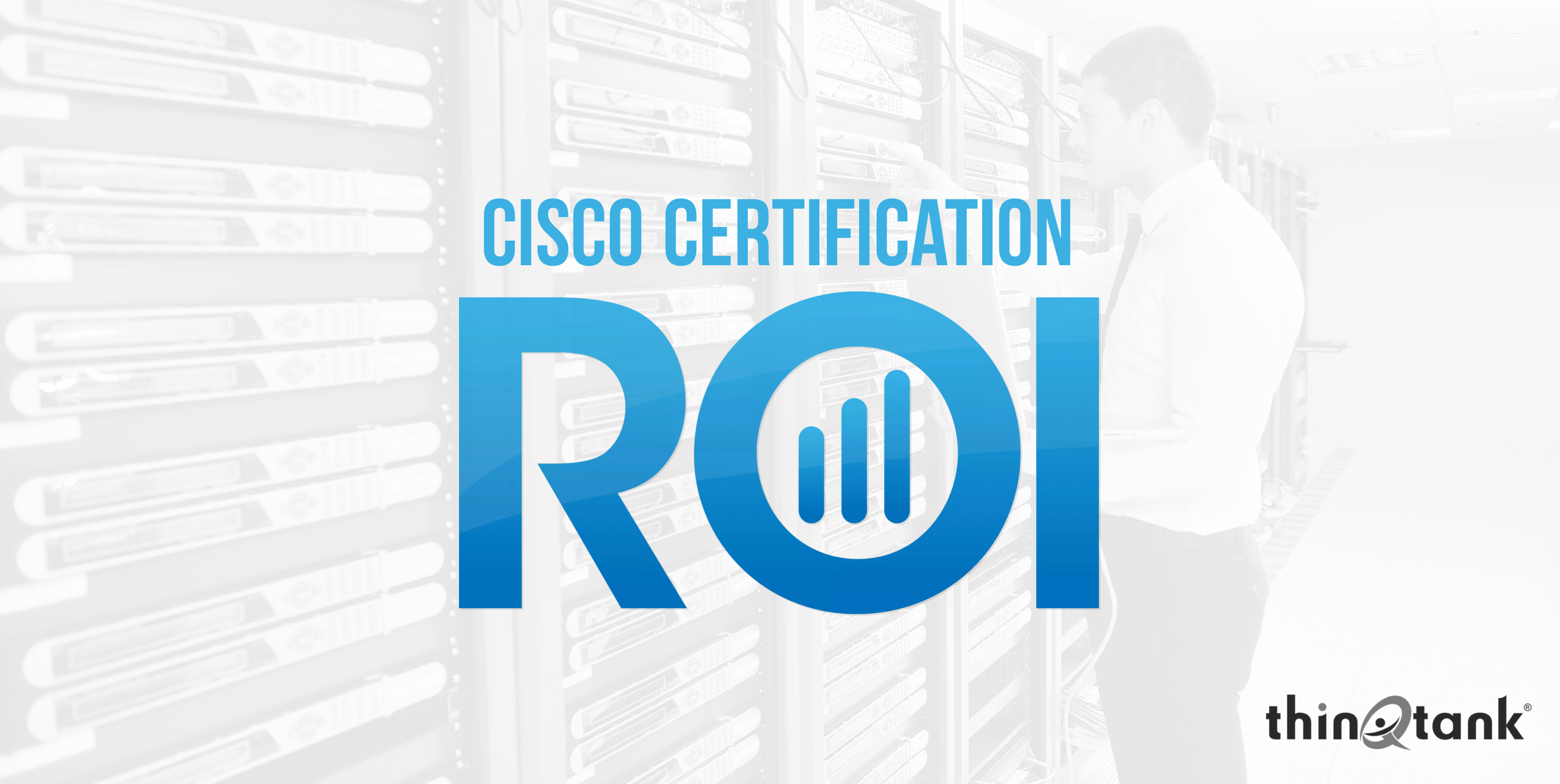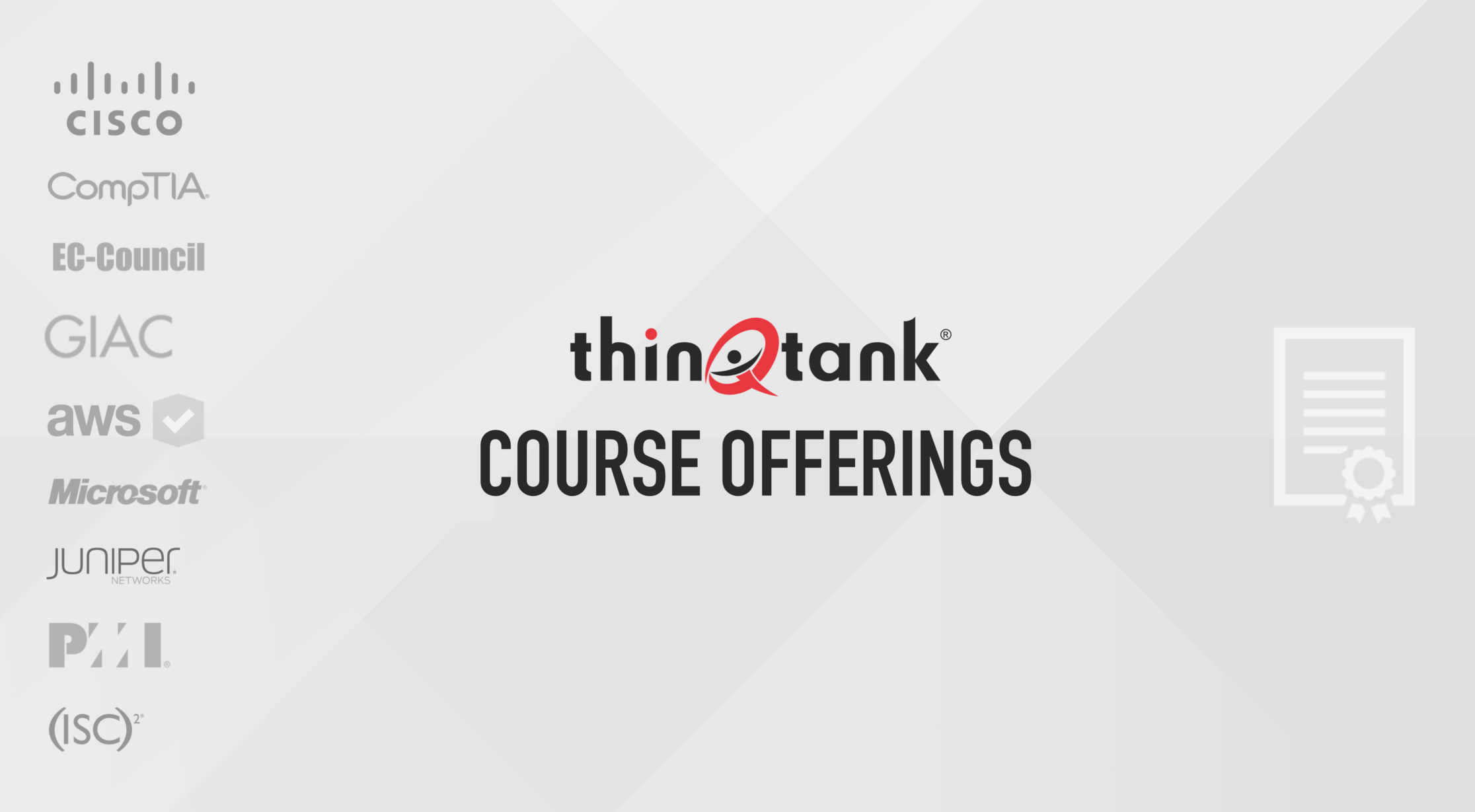Cisco Certification ROI

Cisco is one of the most prominent IT vendors in history. Its name is synonymous with the network infrastructure – such as routers and switches – that make up the backbone of the internet. For IT professionals, knowledge of Cisco’s products and services is as important as ever, especially for network engineers.
A Cisco certification is the best way to gain and demonstrate your knowledge of these solutions. Let’s dig into what you can really get out of a Cisco certification:
Networks around the world are being overhauled to handle the surge in IP traffic from cloud applications. According to Cisco itself, IP traffic could surpass 2.3 zettabytes a year by 2020, up from 1 zettabyte at the end of 2016. Moreover, busy hour internet traffic – i.e., during the most active period of the day – is growing faster than internet traffic as a whole.
To adjust to this deluge of activity, infrastructure is being upgraded. This means new routers and switches in data centers and offices across the globe. As your organization or client upgrades its networks, you need to have familiarity with the Cisco products that are likely to be implemented during these updates.
According to Grand View Research, the global switch and router market could be worth more than $41 billion by 2022. The push toward cloud computing, data analytics solutions and software-defined networking are seen as the main drivers of this growth.
Speaking of SDN, it is an important area of investment and innovation for Cisco. The networking giant has been challenged on this front by several upstart vendors that have looked to shift the burden of network intelligence and control away from hardware and toward software.
Cisco has taken some important steps to maintain its position in this realm. Platforms such as Application Centric Infrastructure achieve many of the same goals as SDN – namely, dealing with the extraordinary demands of modern applications, many of which outrun the capabilities of traditional network infrastructure – while still using Cisco-specific hardware to define their behaviors.
“Cisco ACI delivers an agile data center with simplified operations and increased application responsiveness to support a new generation of distributed applications while accommodating existing virtualized and non-virtualized environments,” explained an official Cisco “At-a-Glance” guide to ACI.
Industrial facilities require an exceptional level of network reliability and resiliency. To achieve these ends, many factories still rely on old-fashioned fieldbus architectures such as PROFIBUS and Modbus in order to dependably handle their network traffic.
In recent years, there has been a profound shift in the industrial networking market as more organizations adopt Ethernet and IP networking within their facilities. Cisco has a unique advantage during this transition, since it provides the switches and security services that help support industrial Ethernet solutions. Being certified in managing industrial networks enables you to comfortably work with these highly demanding infrastructures.
Cisco’s products and services are hardly limited to behind-the-scenes devices such as routers and services. The company also maintains a large portfolio of collaboration solutions, such as its unified communications, voice and video packages.
These tools enable efficient communications with branch and remote offices. Entire conference rooms can be outfitted with microphones and monitors that make long-distance meetings a breeze. By becoming certified in Cisco voice and video collaboration, you can implement and maintain these complex infrastructures.
thinQtank® Learning offers many different Cisco certifications in areas beyond just the ones listed here. Find out more today about our Cisco certifications to further your knowledge and your career.
If you have any questions about our Training and Certification Programs, we would love to hear from you! Give us a call at 855-TO-THINQ (855-868-4467) or email website@thinqtanklearning.com.


